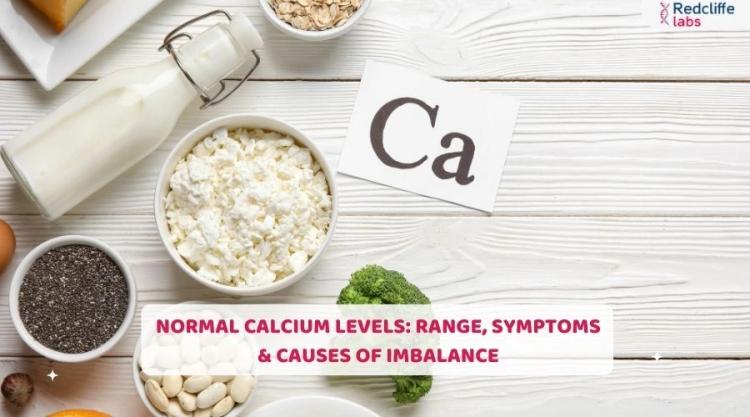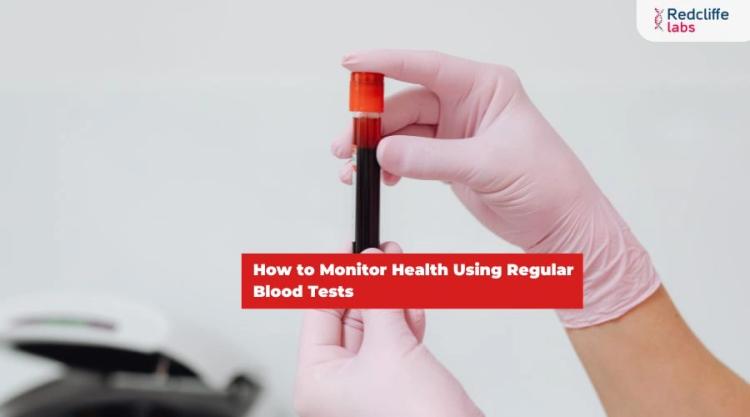Vitamin K- Functions, Food Sources, Deficiencies, Side effects

Medically Reviewed By
Dr Divya Rohra
Written By Prekshi Garg
on Aug 4, 2022
Last Edit Made By Prekshi Garg
on Jan 9, 2025

Vitamin K is an essential nutrient involved in major body processes like blood clotting and wound healing. Vitamin K is a group of two compounds, vitamin K1, and K2. Vitamin K1 is generally considered more important; thus, all the vitamin K supplements available on the market contain vitamin K1. Also, your body can convert small amounts of vitamin K1 to vitamin K2. Therefore, vitamin K2 deficiency rarely occurs. In this article, let us discuss more about vitamin K like the functions of vitamin K, dietary sources of vitamin K1 and K2, deficiency of vitamin K, its symptoms, complications, and side effects. This will help you know the importance of vitamin K and why monitoring the level of vitamin K is essential.

Functions of vitamin K
Vitamin K is an essential nutrient that performs multiple functions in your body. A sufficient amount of vitamin K is necessary for your body to function normally. Vitamin K is involved in a variety of functions which are enlisted below.
Regulates blood clotting
Vitamin K is responsible for the circulation of calcium throughout the body. Calcium is an essential nutrient required during blood clotting, which occurs during the tear of the blood vessels. Therefore, if vitamin K deficiency occurs, the calcium levels in the blood decrease, which can hamper the process of blood clotting, leading to excessive blood loss. The blood disorder myelodysplastic syndrome can be improved with adequate levels of vitamin K2.
Prevent osteoporosis
After the age of 50 years, the loss of bone density is very common, especially in menopausal women. If left untreated, osteoporosis can lead to multiple complications. The general signs and symptoms of osteoporosis include pain in bones, easily fractured bones, and spinal deformity. People at the age of 20 - 30 should start taking care of their vitamin K intake to improve bone strength.
Reduces menstrual flow and pain
Vitamin K also reduces the excessive flow of blood in women during their menstrual days. Therefore, deficiency of vitamin K causes excessive flow of menstrual blood in females. It is also observed that taking vitamin K supplements during your menstrual days can help reduce the amount of blood flowing out of your body. Besides excessive blood flowing during the menstrual days, vitamin K also regulates the hormones during menstrual days, reducing your pain. If you feel a lot of pain during your menstrual days, you must get your vitamin K levels tested.
Prevent biliary obstruction
Prolonged intake of antibiotics can lead to health complications like ulcerative colitis, celiac disease, biliary obstruction, and regional enteritis, which can worsen with vitamin K deficiency. Thus, if you take vitamin K supplements regularly, you can prevent the occurrence of these complications in the future.
Regulate blood sugar
The insulin hormone produced by the pancreas contains high levels of vitamin K, which is essential for the adequate functioning of the pancreas. This vitamin K-containing insulin enzyme helps regulate blood sugar levels and transform the sugar into energy.
Relieves nausea during pregnancy
Women with vitamin K deficiency often suffer from excessive nausea and vomiting during pregnancy. Thus, vitamin K is generally prescribed to such women to reduce the symptoms of pregnancy and also to positively impact the physical and mental health of the growing child.
Protect immune system
According to research, vitamin K is known to play a key role in protecting the digestive system and the immune system.
Prevent haemorrhage in babies
Injections of vitamin K are given to newborn babies to prevent them from haemorrhage. Regular drops of vitamin K are given to children orally to treat asthma.
Frequent urination
Passing urine is very important to remove toxins from your body. Vitamin K plays a crucial role in increasing the flow of urine. Thus, your doctor may prescribe you vitamin K if the flow of your urine is too less.
Prevent cancer
According to research, vitamin K is important in preventing colon, stomach, prostate, oral, and nasal cancer. Vitamin K stabilises liver cancer patients and improves the gland's functioning.
Food sources rich in vitamin K
There are several food items which are rich in vitamin K1. However, the presence of vitamin K2 is much less in food sources. The bacteria in your gut can convert small amounts of vitamin K1 into vitamin K2. The good dietary food sources of vitamin K1 are:
- Lettuce
- Broccoli
- Turnips
- Carrot
- Spinach
- Collards
- Kale
- Grapes
- Blueberry
- Vegetable oil
The dietary sources that can replenish you with vitamin K2 include:
- Sauerkraut
- Dairy products
- Pork
- Beef
- Organ meat like liver
- Chicken
- Egg yolk
- Fatty fish
Vitamin K deficiency
Vitamin K deficiency rarely occurs in adults because most dietary food is rich in vitamin K1 whereas the body naturally synthesises vitamin K2. Despite this fact, certain medicines and medical conditions that interfere with the absorption and synthesis of vitamin K. However, the deficiency of vitamin K is common in infants and is commonly referred to as vitamin K deficiency bleeding (VKDB). The symptoms of vitamin K deficiency include:
- Excessive bleeding and bruising
- Presence of small blood clots underneath your nails
- Bleeding in the inner lining of your body, that is, the mucous membrane
- Excretion of dark-coloured stools that may also contain blood
- In infants, you may observe bleeding from the area where the umbilical cord is removed or bleeding in the nose, skin, penis, brain, and gastrointestinal tract giving rise to life-threatening conditions.
Vitamin K deficiency can lead to various chronic disorders. Therefore it is very important to maintain the optimum levels of vitamin K to prevent the occurrence of these disorders.
Coagulopathy
This disorder is characterised by the blood’s inability to coagulate, which causes excessive bleeding during surgery or medical procedures.
Anaemia
This disorder is characterised by a decrease in the number of red blood cells (RBCs) and haemoglobin that ultimately reduces the oxygen transport throughout your body.
Hematoma
In this condition, trauma, injury, or damaged capillaries causes localised bruising outside the blood vessels that can occur due to the blood oozing out of the blood capillaries.
Petechiae
In this condition, you might observe red or purple colored spots formed on the affected part of your skin due to broken capillaries.
Vitamin K deficiency bleeding (VKDB)
VKDB is a condition that occurs in newborn babies. In this condition, newborn babies who lack vitamin K bleed profusely either inside or outside the body, creating a fatal situation for the baby.
Obstructive jaundice
The blockage in the bile duct hinders the absorption of vitamin K from the digested food. This leads to an exponential increase in the levels of bilirubin in the blood that lead to chronic liver disease or obstructive jaundice.
Side effects of vitamin K
There are generally no side effects associated with vitamin K. However, you may have experienced some side effects related to vitamin K deficiency which generally includes bruising and bleeding. To prevent the side effects, you should take care of certain things.
- Eat less sources of vitamin K if you are on anticoagulants or blood-thinning drugs like warfarin.
- Ensure that you do not make sudden fluctuations in the intake of vitamin K food, that is, you must take the same amount of vitamin K-containing food each day.
- Try keeping the levels of vitamin K constant on a daily basis as they can interfere with the working of certain drugs.
Takeaway
Vitamin K is an essential nutrient that regulates the proper functioning of your body. It is very important to take the daily requirement of vitamin K from food sources. Now that you know how important vitamin K is, the sources of vitamin K, symptoms and consequences of vitamin K deficiency, and its side effects, it is better to increase the intake of vitamin K-rich food in your diet to prevent complications of vitamin K deficiency.
Frequently Asked Questions (FAQs)
-
What causes vitamin K deficiency?
Vitamin K deficiency can be caused due to inadequate intake of vitamin K from food sources or supplements, fat malabsorption, or the use of anticoagulants.
-
Who is more prone to vitamin K deficiency
Vitamin K deficiency can occur in people of all ages. However, it is more common in newborn babies.
-
What is the function of vitamin K in our body?
Vitamin K is essentially required in your body for blood clotting and wound healing.
Leave a comment
3 Comments
Md fasih
Dec 28, 2024 at 12:16 PM.
Good knowdge
Myhealth Team
Dec 30, 2024 at 10:22 AM.
Thank you! Glad you found the article informative.
Patrick wainaina
Aug 15, 2024 at 4:15 PM.
The information given here has helped me alot than alot
MyHealth Team
Aug 17, 2024 at 11:47 AM.
We are very glad you have liked the information!
Bk Pialy
Aug 1, 2024 at 10:45 AM.
Quite informative, good. Thanks a lot.
MyHealth Team
Aug 1, 2024 at 7:33 PM.
We are glad you have liked the information!



